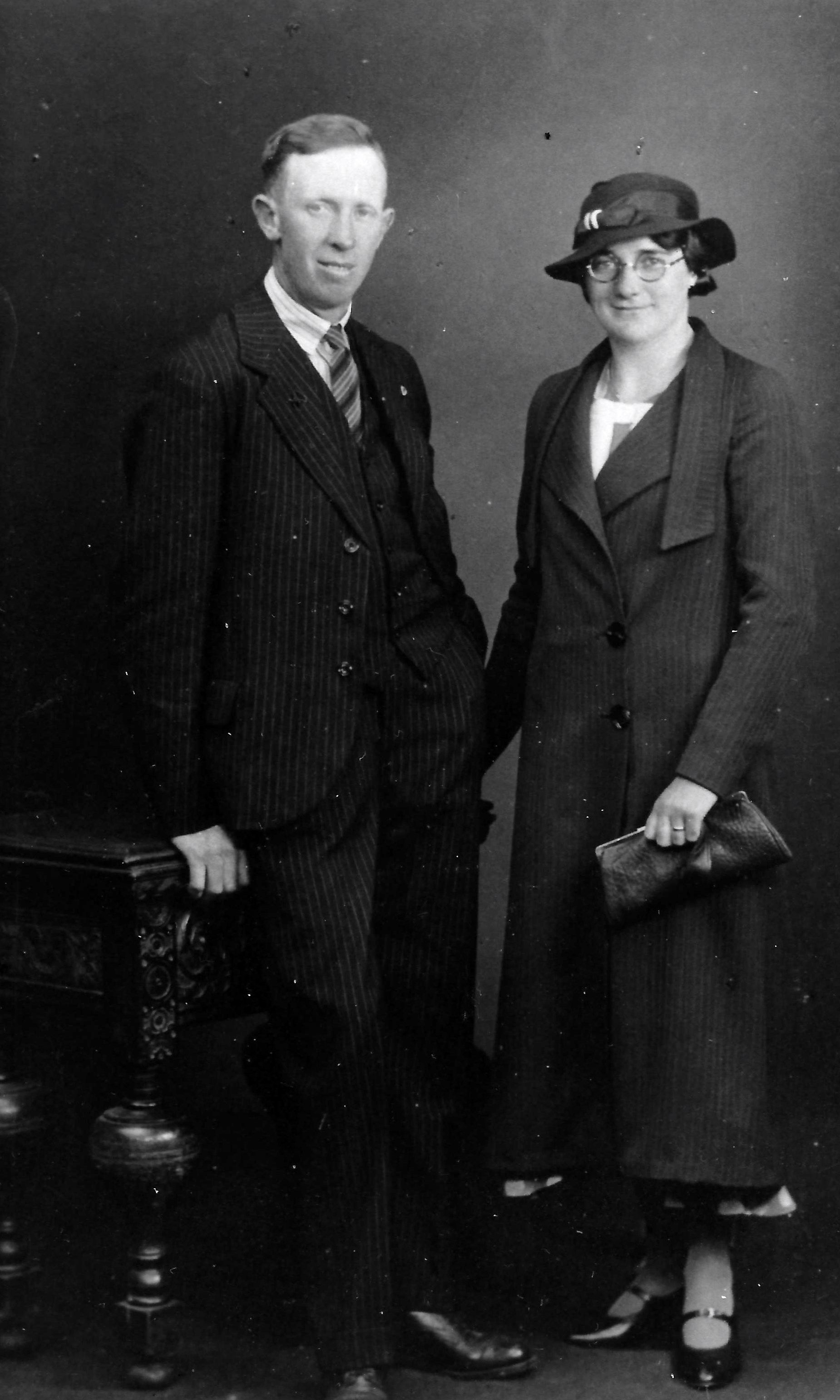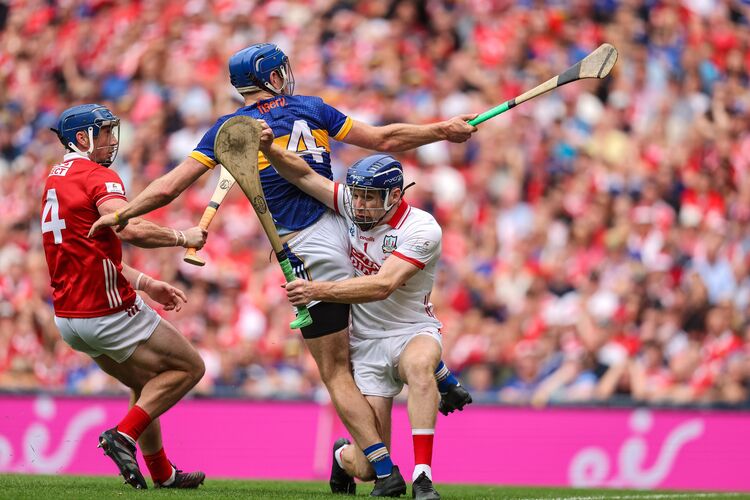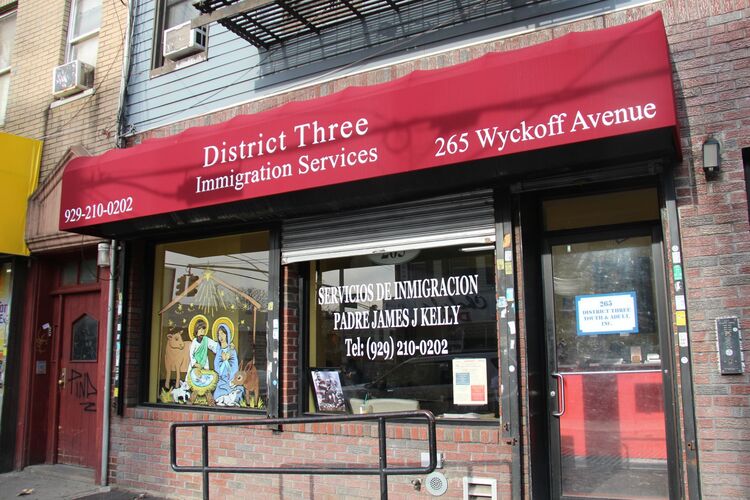Recently, during a break in a rainstorm, I carried the garbage out to the curb. When I leaned down to move a bag, I lost my balance and toppled forward. Instinctively, my arms flew out in front to save my skull, but I belly-flopped into the three inches of rainwater in the roadside gutter.
In the gutter I was unable to get my 83-year-old feet under me. I swiveled on my belly until I was facing the curb, and with the help of those five inches of concrete I assumed the perpendicular. While I was creating this spectacle for my neighbors’ security cameras, the decades-old remembrance of my father lying face down, stuck in a gap in a hedge on our farm in Ireland, was in my brain.
I never felt close to Dad. I have no memory of ever sitting on his knee. But I do have memories of his exploding anger. Dad made his living and provided for Mam and their five children by working a farm. His 52 acres were constantly under threat from the vagaries of animal diseases and the uncertain Irish weather. Cereal crops might be flattened by wind-driven rain; fields flooded while the crops were still in the drills; bullocks ready for market dead of blood murrain; a beloved mare killed in a thunderstorm; four calves dead on the same day. And all the time Dad stayed at it, a rural, mud-stained, and exhausted Sisyphus. No wonder he occasionally exploded. From where did he draw the mental and physical strength to face the long daily slog? How many times did he teeter on the edge of despair?
When I was a young priest assigned to one of Brighton’s parishes, I spent my annual two-week vacation in my family home in Mountmellick. Every morning I put on my old clothes and joined in the farm work. But every evening I washed up and then dressed in my black suit and roman collar and set out to visit uncles and aunts and cousins and neighbors. My parents always suggested who should be visited and I soon realized I was the family nuncio being sent to ward off questions posed by relatives and neighbors when I had returned to Brighton: “Why didn’t Tom come to see us when he was home?” And my parents would hear the inference: “Tom is so swanky now he doesn’t bother with us anymore.”
One summer it was arranged that I would visit Dad’s sister, a nun, at a time convenient to her convent’s schedule. My aunt lived in Lucan, a 50-mile drive from home. In the kitchen, I had a foot on the edge of a chair, tying my shoelace, when Dad, sitting behind me, said, “If I was going to see someone, I would go on time.”
Without turning around, I spoke back to my father for the first time in my life. “Dad, I spend all my time in England visiting parishioners. I have to keep a record for the parish priest and show it to him every day. When I come home to Ireland I want to have a break from that. All I want is to be home and out in the fields.” I took my foot off the chair and faced him. “I have plenty of time to get to Lucan, and I wish you would not keep at me about visiting people.” As I was saying the words, I knew I was embarrassing Dad; was spear-piercing him in the heart in the presence of my mother and brother; was in a roundabout way belittling, by my disrespect, the life he had spent keeping his family out of poverty.
On my last Sunday at home before returning to England, Dad asked me to go for a walk across the fields. Never in his life had he taken a leisurely walk across the fields—he only worked them, tilled them, planted them, reaped them, kept their hedges in check. This invitation was so out of character, so unexpected, that I felt uncomfortable at the prospect of spending time alone with him. Our contretemps was still very much on my mind, and I suspected it was still hurting him. Since the Lucan visit, we had been mostly silent in each other’s presence. I had wanted to talk to him about my sorrow at having hurt him, but I did not know how. Maybe during this walk he would bring up the subject; perhaps this was what the walk was about.
“Bring the rifle,” he said. “You might get a shot at a rabbit.”
At this point Dad was in his 60s but his body was as old and as painful as that of a man in his 80s. The life he had lived had been hard on his body. He was stooped. A thin ash pole, higher than his head, was his walking stick.
As we crossed the Pasture and the Bog Field we spoke about birds, drains, bushes, soil, gates, animals, weather, rabbits, and myxomatosis. I wanted ever so badly to broach the subject of our separation. Here I was a priest, supposedly a counsellor to troubled people, and I was crippled with total inadequacy. I was anxiously waiting and hoping Dad would create an opening. Looking back, I realize he was probably as anxious as I was, but he too could not bring himself to look at the raw sore. Perhaps our being out for a walk together was sufficient in his mind to returning our relationship to the way it was.
When we reached the hedge in the Horses’ Field, the only way to get into the Sandpit Field, where the rabbits were, was to climb through a low narrow gap. As children we always crept through this gap by getting down on our bellies and crawling under a sturdy tree branch that that had grown parallel to the ground. Between branch and ground there was a 12-inch space.
“Will you be able to get through that?” I asked Dad.
“I will. You go first.”
On my belly, using my elbows to pull and my toes to push, I crawled through. I stood up, and across the top of the hedge I saw Dad lowering himself to his knees hand-over-hand down along his ash pole.
“Here, take this,” he said as he pushed the pole ahead of him through the gap.
Halfway through he became stuck, could not go forward or backward. He rested. He struggled. He rested.
I knelt down at my side of the gap and said, “Give me your hand and I’ll give you a pull.”
“I’m alright,” he said.
Listening to his struggles, I began to cry silently for him, for his helplessness; for this humiliation; for this manifestation of a worn-out body that did not have much life left in it, a body racked with pain; for my own inability to tell him I loved him. It took several minutes for him to emerge on my side. By that time I had blown my nose and dried my face.
As I lay momentarily helpless in the water in the gutter outside our house, I remembered Dad’s refusal to take my hand. And from that memory I realized I had no remembrance of Dad ever touching me as a child, except when he trimmed my nails and bathed me in our galvanized tub on Saturday nights. Even in his helpless position in the gap, he did not grasp my helping hand. I realized too, that when I reached out to him it was with a feeling of hesitation, similar to the fear I had as a child when pushing my hand into a sand marten’s burrow to feel how many eggs were in the nest; a biting rat might be lurking in there.
Dad and I sat for an hour on the bank under the Sandpit Field hedge. Despite our whispering, the rabbits did not come out to graze.
“I never fired a rifle, only a shotgun,” Dad said.
I gave him the gun. “A rifle doesn’t kick like a shotgun. See that yellow sign on the electric pole down there! Shoot at it.”
“If I miss it, the bullet will go on for miles and might hit someone,” he said.
“No, it won’t. We’re high enough for the bullet to end up in the Rushes Field. I think you’re just afraid you’ll miss.”
“How will I know if I hit it?”
“We’ll go down to the pole and check,” I said.
None of his six shots hit the target.
We went home by way of the Hollow and Limekiln Fields. There were three gates and no gaps. We talked about the day our mare Carnera died; and about how Lame Mare got her limp; and about Lame Mare’s daughter, Whiteface, had behaved all her life like a distracted and reluctant adolescent; about Red Pony, long dead, who took every outing under the trap as a record-breaking challenge: how Black Pony, shying from a piece of blowing paper, almost backed into the Canal one Sunday morning after Mass with the children and Missus Burns in it.
“Only your mother jumped out and grabbed her by the bit, you might have all been drowned.”
Almost 60 years later Dad is still stuck face down in the gap between the Horses’ and the Sandpit Fields, and my inability to connect with him is still a splinter in my heart.
© 2024 by Glanvil Enterprises, Ltd.
Tom Phelan, who was born and reared in Mountmellick, Co. Laois, is the author of many novels and of the acclaimed “We Were Rich and We Didn’t Know It: A Memoir of My Irish Boyhood.” For more about him, go to www.tomphelan.net.







